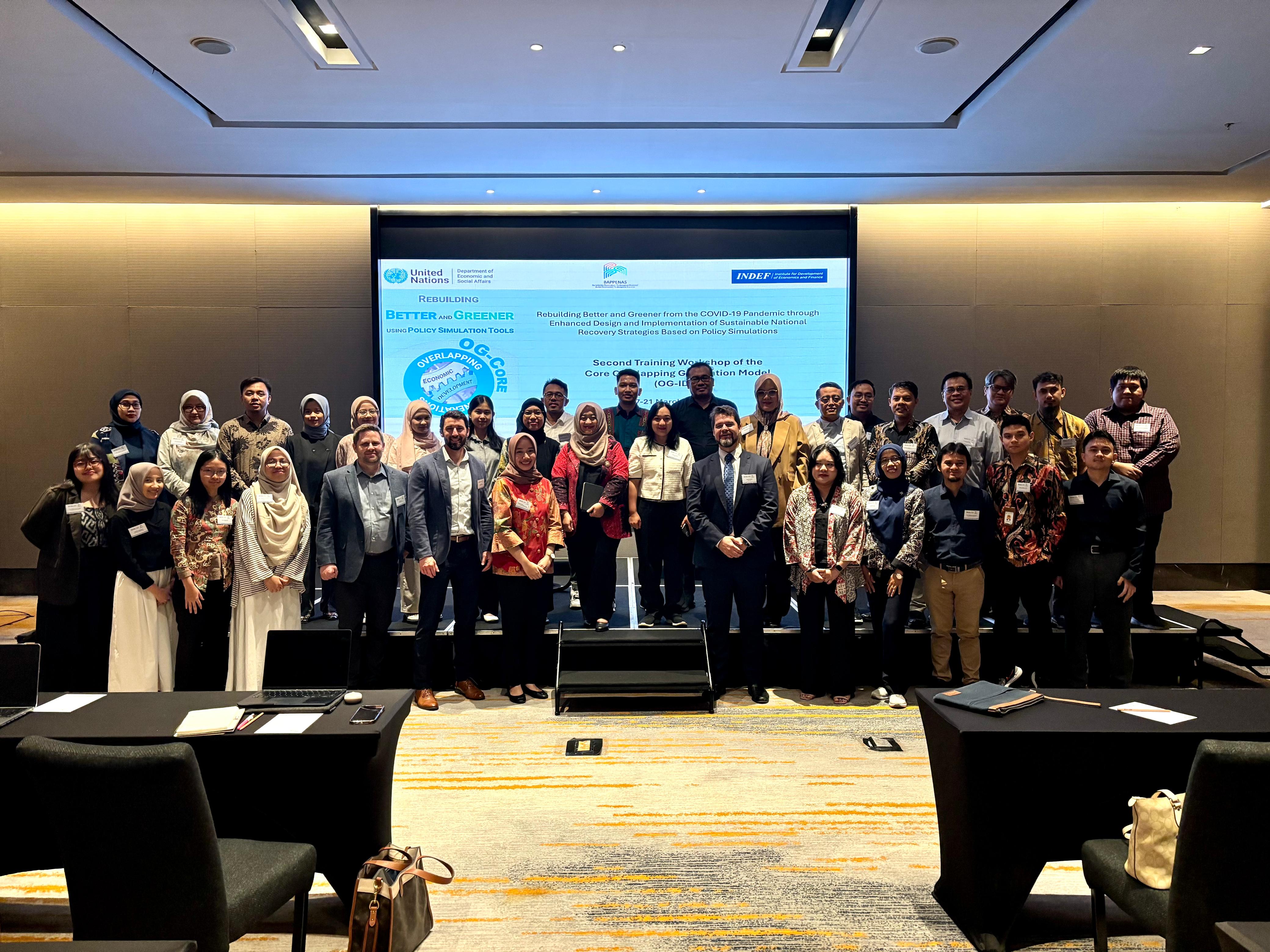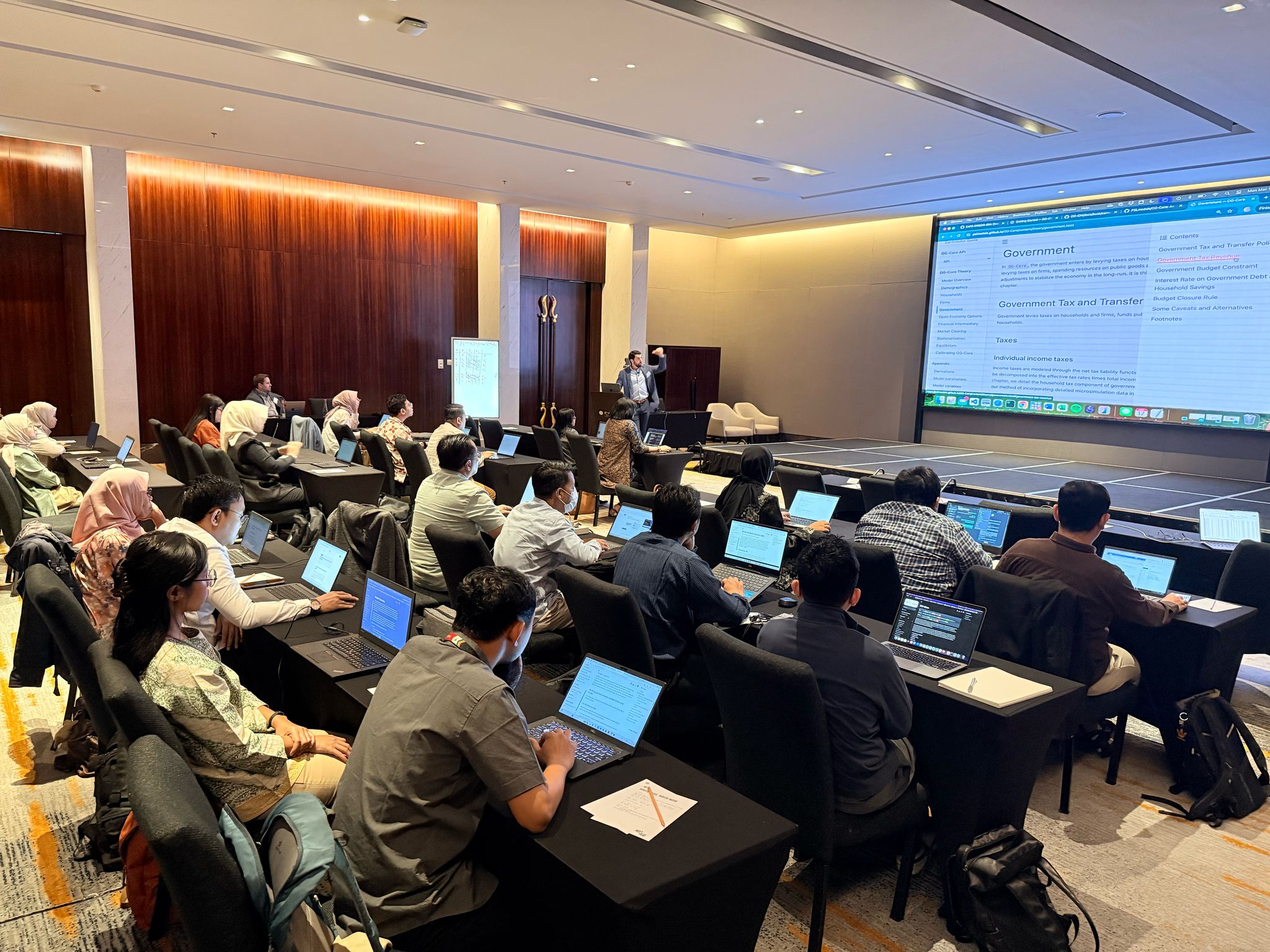
The United Nations Department of Economic and Social Affairs (UN DESA), in collaboration with Indonesia’s Ministry of Development Planning (Kementerian PPN/Bappenas), organized a training workshop in Bandung from 17 to 21 March 2025. The five-day program brought together 34 government officials, researchers, and economists, providing them with practical experience in using advanced policy simulation tools to shape Indonesia’s long-term economic strategy. Participants engaged in a structured program that combined theoretical insights with practical applications, covering key topics such as: Understanding the OG-IDN Model, Data Integration & Calibration, Policy Simulations, Interpreting Results for Policy Insights, and Training on digital tools like Python, Git, and GitHub for data management and model development. They also had the opportunity to explore in greater depth topics such as the impact of budgetary reallocations on the education and public health sectors, macroeconomic effects of pension reforms, and the effects of energy tax reforms on fossil fuels and energy consumption—including their broader impact on GDP and economic growth. The Deputy Minister for Macro-Development Planning, Mr. Eka Chandra Buana, observed the presentations, provided closing remarks, and distributed completion certificates to the participants. By enhancing stakeholders’ expertise in advanced economic modelling, this initiative strengthens Indonesia’s ability to design and implement resilient, evidence-based policies. With improved analytical capacity, policymakers are better equipped to address future challenges and drive sustainable, inclusive recovery in the post-pandemic era. This workshop was part of the project “Rebuilding Better and Greener from the COVID-19 Pandemic through Enhanced Design and Implementation of Sustainable National Recovery Strategies Based on Policy Simulations”. Building on a series of previous consultations and presentations, this second session focused on strengthening participants’ proficiency in the Indonesian Overlapping Generations Macroeconomy Model (OG-IDN)—a sophisticated open-source tool designed to assess the long-term impacts of fiscal policies, social spending, and economic reforms.

For More Information
Please see our newsletters.